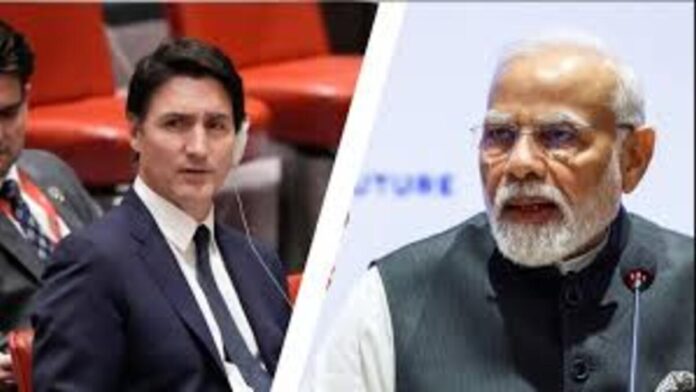In his testimony before the public investigation into foreign meddling in Canadian elections and democratic institutions, Justin Trudeau claimed on Wednesday that Indian diplomats were gathering data on Canadians who disagreed with the Narendra Modi administration and sending it to the highest echelons of the Indian government as well as criminal groups like the Lawrence Bishnoi gang.
Although the Lawrence Bishnoi gang has a sordid record of extortion and murder in India, the Royal Canadian Mounted Police have charged them with potential participation in the murder of Hardeep Singh Nijjar. The Lawrence Bishnoi gang was identified by the RCMP as an organised crime group that India uses to target Sikh separatists and members of the South Asian diaspora.
Attempts by Canadian authorities to connect Indian agents with criminal gangs in Canada have been vehemently denied by India. Canada’s claim that it exchanged evidence with New Delhi in the case of Sikh separatist Hardeep Singh Nijjar was “simply not true,” according to official sources in the Indian administration.
The 2023 murder of Hardeep Nijjar in Vancouver has escalated diplomatic relations, and Justin Trudeau accused India of invading his nation’s sovereignty.
According to the news agency, Justin Trudeau spoke during the parliamentary inquiry about what he described as extensive attempts by Indian delegates to stifle critics of Prime Minister Narendra Modi’s administration in Canada.
Justin Trudeau further detailed conduct that he said involved Indian “diplomats collecting information on Canadians who are opponents or in disagreement with the Modi government”.
He added that information was then passed along to “the highest levels within the Indian government”, and then “through criminal organisations like the Lawrence Bishnoi gang to then result in violence against Canadians on the ground”.
Trudeau claimed that the Sikh community was not the only group in Canada to be intimidated by India.
When India hosted the G20 Summit in September 2023, Trudeau added, his administration had the option to make the accusations public but decided against it. When he met with Modi, he discreetly voiced his worries.
“It was a big moment for India welcoming all the leaders of the world to New Delhi for a very important summit and we had the opportunity of making it a very uncomfortable summit for India if we went public with these allegations ahead of time,” said Trudeau. “We chose to continue to work with India behind the scenes to try and get India to cooperate with us.” Trudeau said when he returned home India’s response, particularly through the media, was to attack Canada.
Later, in Parliament, Trudeau made the accusation that the Indian government may have been complicit in Niijar’s murder.
On Thursday, the ministry of external affairs stated that the information it has received merely “confirms” New Delhi’s stance that Canada has “presented us no evidence” to back up the grave accusations Ottawa made against India and Indian officials.
When he claimed that Indian government officials were involved in Nijjar’s death, Trudeau admitted that he had just intelligence and no “hard evidentiary proof.”
The MEA issued a statement in response to media queries related to Trudeau’s deposition, some of whose details came out in media reports. “What we have heard today only confirms what we have been saying consistently all along — Canada has presented us no evidence whatsoever in support of the serious allegations that it has chosen to level against India and Indian diplomats,” MEA spokesperson Randhir Jaiswal said in a statement.
The ministry further said, “The responsibility for the damage that this cavalier behaviour has caused to India-Canada relations lies with Prime Minister Trudeau alone.”




